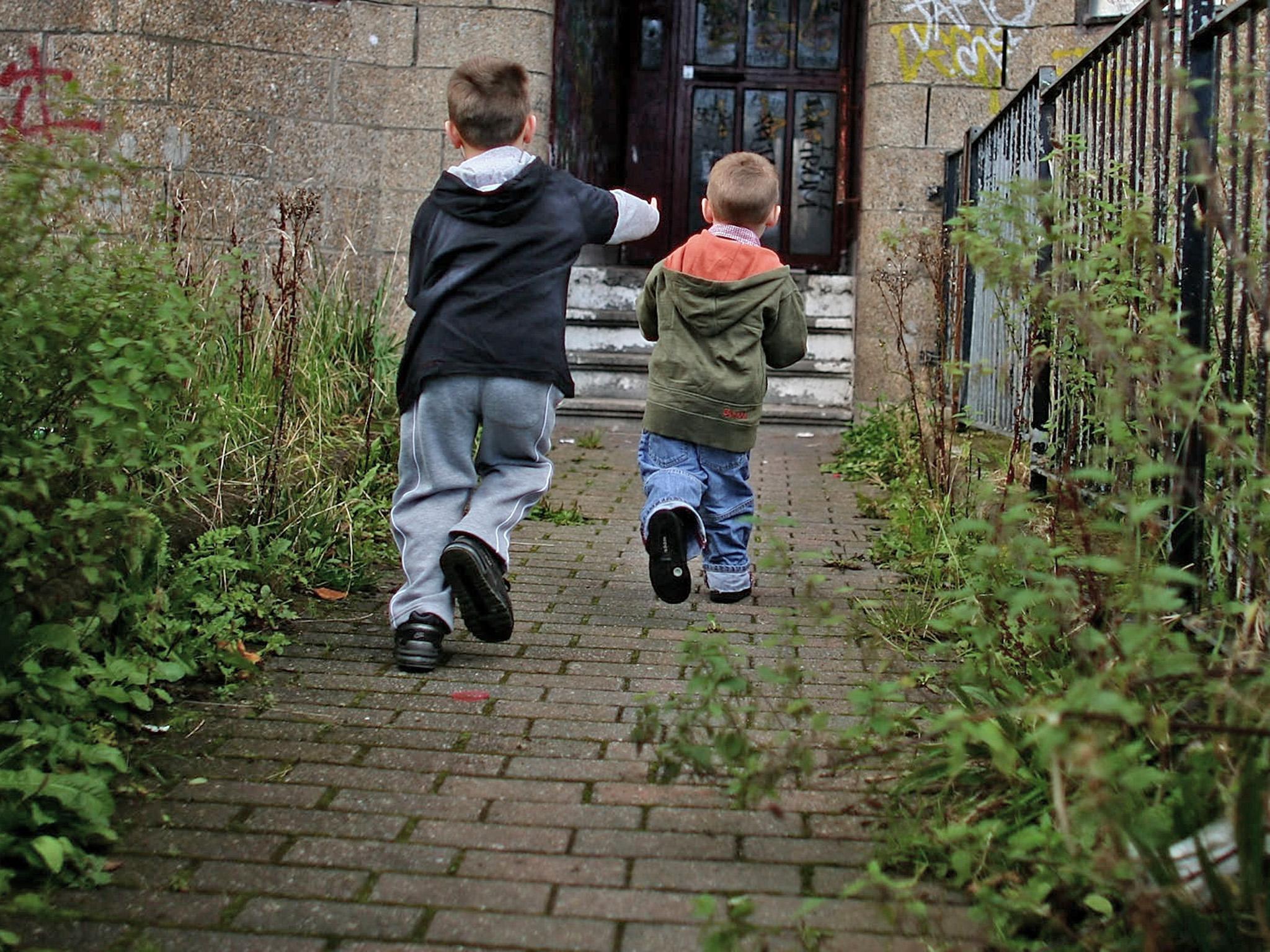Children in poor families seven times more likely to harm themselves, study finds
'Though to some extent, we all make choices, what children go through does have a powerful effect on these harmful behaviours'

Children from poor backgrounds are significantly more likely to harm themselves as young adults, according to a major new study.
Growing up in poverty can have an “adverse impact” on child development, which can in turn lead to higher risk of self-harm and violence, researchers at the University of Manchester found.
Their study showed that children who remained in the top 20 per cent of wealthiest families over their first 15 years of life were the least likely to harm themselves or commit violent crime between the ages of 15 and 33.
However, those from families who remained in the least affluent fifth of society were seven times more likely to harm themselves and 13 times more likely to commit violent crime as young adults.
Using Danish national registers of over one million young adults, the study analysed 21,267 patients who presented to hospital with self-harm episodes and 23,724 people who were convicted for violent crime aged 15 to 33.
But the researchers said that although the report drew on data relating to the entire population of Denmark, its results were relevant to the UK, as its population demographics and health system are similar.
They added that 10 years of austerity in the UK would be likely to "escalate and entrench" these problems, with poverty currently affecting more than one in four children in the UK.
The findings appear to support claims that austerity has contributed to a spate of youth murders on the streets of London. More than 30 people aged 16 to 24 have been murdered in the capital so far this year.
“This study casts new light on our understanding of the deep-rooted causes of self-harm and violent behaviour," said Professor Roger Webb, one its authors. "Though to some extent, we all make choices, what children go through does have a powerful effect on these harmful behaviours.
“Exposure to poverty can have an adverse impact on early child development as well as parental conflict and separation, harming children’s psychosocial development and well-being.”
He added: “This study underlines just how important it is to tackle socioeconomic inequalities during childhood. That encompasses access to public services, good housing and education but also things like local and social environments.”
Join our commenting forum
Join thought-provoking conversations, follow other Independent readers and see their replies
Comments
Bookmark popover
Removed from bookmarks